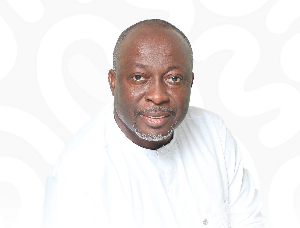You may wander as to what this article is all about-what does the writer mean by the term ‘harambee’? Indeed, during the struggle for self rule in the nineteen four ties and fifties Kenyans, under the leadership of the late President Jomo Kenyata (RIP) formulated a political slogan as a framework in which to proceed in their fight against the British Colonial Rule, and won it! A Swahili concept, ‘harambee’ literally means let us live and work together! I currently have some Kenyan learners as my personal students here at Middlesex University and they are often amused with my use of the borrowed term ‘harambee’ from their late President.
Interesting as it can be said, our former President J.J. Rawlings (NDC) in his numerous political utterances cautions as on the need to work collectively (harambee in Jomo Kenyata‘s term) towards solving poverty and empowering our people especially in many parts of the country such as the Volta and Northern regions. Former President Rawlings’ choice of the term ‘social justice’ is worth emulating by us all and not only the believers or supporters of the NDC which is rather unfortunate in my view. I believe that the time has come for us to look at the term ‘social justice’ more closely with an ‘open-lens’ approach in the coming political campaign because campaigning is not merely a vote catching exercise but also some inclusion of health education and promotion issues for example. We must read the lips of the political campaigners for certain key words that will entice one to vote for the party he/she wish to vote for. But why have I adopted the term ‘social justice’ instead of terms for instance, ‘equality issues’ or ‘equal opportunities’? Or, I could shun these terms by going straight and naming particular source of injustice currently experienced in the regions exemplified above and the country as a whole. Health inequalities argues Dahlgren and Whitehead (1991) can be considered as inequities when they are avoidable, unnecessary and unfair. I think it is the issue of fairness within our government of the day that has led me to consider the issue of ‘social justice’ in this article. Some important points underlying the principles of a just society as philosopher John Rawls (1999) has shown-it includes the assurance given to our people about equal basic liberties including guaranteeing the right of political participation-NPP or NDC for example. Furthermore, the provision of a robust form of equal opportunity and the limitation of inequalities to those that benefit the least advantaged. Indeed, when these principles are met citizens can be confident that they are respected by others and can realise a sense of self-worth.
I remember my late uncle Chief Dinko Duut (Worikamdana) RIP, at a grand family meeting that he organised in the village of Worikambo (Garu Tempane District) in 1992-the purpose of which was to inculcate the value of family unity in this fast changing world. With his consent I recorded part of his last words for reflective purposes:
I remember my uncle’s snorting reaction, and his saying that trouble far away always comes home if you do not stop it. May be my uncle passed on the idea that our responsibilities do stop at the gate of ones home.
Today, we know about suffering in remotes part of our dear country especially in the Northern Regions with Garu Tempane District or constituency being one of the most heavily affected areas and this awareness demands a response politically, I think. Thanks to our democratic dispensation-we have a choice through the ballot box to re-elect the current ruling political party (NPP) or alternatively, the major opposition party (NDC). It is worth remembering that the NDC adheres to the principles of ‘social justice’ discussed above with the recognition that there is someone out there needing help! It is worth asserting that the fearful person is inclined to disconnect - ‘it is not my problem, there is nothing I can do’ - the loving person wants to help, but often feels powerless.
Few of us have the individual political power of a JM or a JK to sway the opinions of government and agencies, and that sense of powerlessness can collectively we can move mountains-we can pick through the ballot box a listening party to govern us that will consider the concerns of the weak, poor, young and old.
I believe that a gesture of compassion can be as effortless as singing up cheques for payments to contractors for example, with vested interests by some of our current political leaders.
Finally, I believe that the willingness to care for others is the essence of being human, and we can all do it in ways big or small to empower the people of Garu Tempane District and Ghana as a whole.
God/Allah help Ghana.















